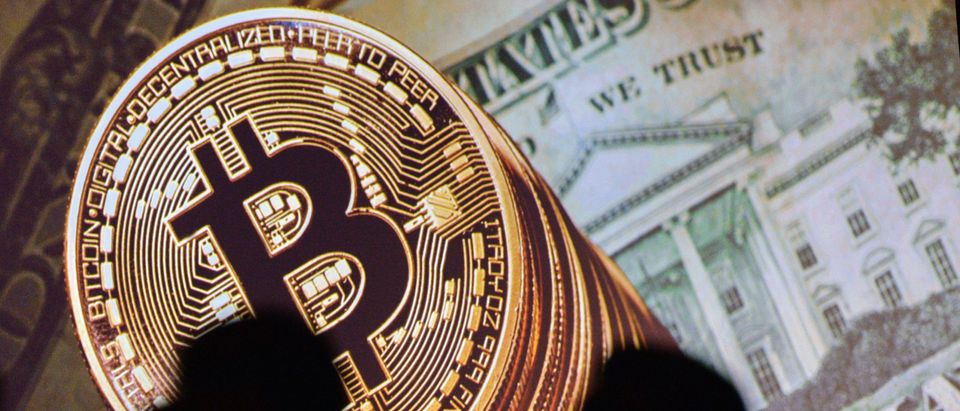Big government doesn’t like competition, which is why the ruling class in Washington has set its sights on a new culprit: cryptocurrency. Without even consulting Congress, the Biden administration has ordered federal agencies to draw up regulations for these innovative financial products and their exchanges.
Because everything in Washington today must involve obfuscation, the Biden administration is billing the new executive order as “ensuring responsible innovation in digital assets.” Unfortunately, the bureaucrats who determine what “responsible” is have a fear and loathing of the freedom cryptocurrencies potentially offer.
The executive order gives the Treasury Department and other agencies a hunting license to come up with regulations for crypto and “to identify and mitigate economy-wide (i.e., systemic) financial risks posed by digital assets.” It also tasks agencies to consider a “central bank digital currency,” which would be like a government version of the digital dollars you already use if you have an ATM or credit card — except the government would be able to track your every transaction.
There is legitimate worry about some of the hype around crypto. A perfect currency would not change radically in value from day to day, as bitcoin and its peers often do. Instead, it would maintain equilibrium with something of timeless value: buying the same basket of goods for the same amount of currency tomorrow or ten years from now.
No well-known crypto has achieved this distinction yet, although the market is still young. Clearly it has great promise or else Biden would not be moving in to regulate the industry.
The reason for what the administration is doing is simple: they don’t want competition for the dollar. Since the United States abandoned the gold standard in 1971, the dollar has lost 90% of its value. That’s an enormous tax on citizens who have dollars in their pockets or bank accounts and a huge loss of purchasing power for the wages Americans take home.
How and why did this come about? The answer is big government. Partly to fund the government, and partly to paper over poor financial decisions made by our ruling class, the Federal Reserve recently has increased the supply of dollars beyond what is justified by economic demand. More dollars have been created by the Federal Reserve — invented out of thin air — since 2012 than were previously created in all of U.S. history. The dollar printing has been particularly excessive in the past two years, which is why inflation is out of control.
You may have heard about “quantitative easing” during the Great Recession and following years of Obama-Biden stagnation or of “asset purchases” by the Fed since the coronavirus crisis. Part of those efforts have involved the government spending more money and financing it by issuing bonds from the Treasury Department that the Federal Reserve immediately buys with new dollars it creates. It’s a shell game that is similar to when a banana republic fires up the printing press to issue new pesos when it runs low on cash.
Crypto threatens this arrangement. If Americans have the freedom to choose an alternative to the value-losing dollar and if foreigners have alternatives to their native currencies, then it spells big trouble for the ruling class and unlimited government spending.
The price of Bitcoin and other cryptos went up when the White House issued its executive order Wednesday. Crypto enthusiast Cameron Winklevoss wrote that it “is a watershed moment. It paves the way for thoughtful national crypto regulation that will allow builders to build onshore and ensure that the US remains a leader in crypto — creating greater independence, choice, and opportunity for all.” However, by the next day, investors had thought better, realizing that the order had more to do with regulating and stifling the industry than making it easier for consumers to use cryptocurrencies.
So far, only a small portion of people use alternative currencies on a regular basis. But Biden and his Davos friends are determined to nip this threat in the bud. Time will tell if citizens who want to maintain the value of the money they earn through an alternative to the dollar will let them.
Christian Whiton was a senior advisor in the Trump and George W. Bush administrations. He is the director of communications for Sagebrush Rebellion.


